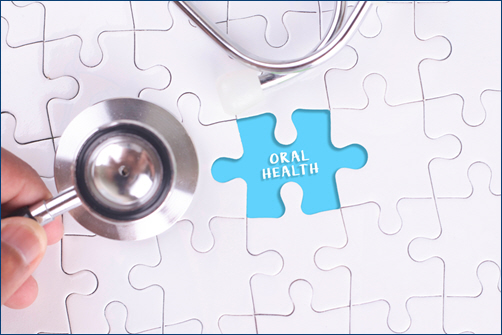How Good Dental Health Supports Heart Health
Maintaining good dental health does more than keep your smile bright—it directly supports heart health. Studies have shown a significant link between oral health and cardiovascular health. This highlights the importance of regular dental care for your entire body. By keeping up with a solid dental routine, you protect your teeth and gums. But you also also reduce the risk of heart disease and other cardiovascular issues. Here’s how good dental health positively affects your heart and what you can do to protect both.
Understanding the Connection Between Oral Health and Heart Health
 Gum disease, or periodontal disease, is a common oral health condition caused by bacterial buildup along the gumline. When plaque isn’t removed through regular brushing and flossing, it hardens into tartar, leading to gum inflammation and infection. Gum disease begins with mild symptoms, like redness and bleeding gums, but can progress into more severe periodontitis if left untreated.
Gum disease, or periodontal disease, is a common oral health condition caused by bacterial buildup along the gumline. When plaque isn’t removed through regular brushing and flossing, it hardens into tartar, leading to gum inflammation and infection. Gum disease begins with mild symptoms, like redness and bleeding gums, but can progress into more severe periodontitis if left untreated.
The bacteria responsible for gum disease can enter the bloodstream through infected gum tissue, potentially spreading throughout the body. Once in the bloodstream, these bacteria can cause inflammation, affecting blood vessels and contributing to the formation of arterial plaque—a key factor in heart disease. This process increases the risk of atherosclerosis, a condition in which plaque builds up in the arteries, restricting blood flow and putting extra strain on the heart.
How Good Dental Habits Protects Heart Health
 Practicing good dental hygiene can reduce the risk of developing gum disease, thereby lowering the chances of bacteria entering the bloodstream and affecting the cardiovascular system. Here’s how daily dental habits contribute to better heart health:
Practicing good dental hygiene can reduce the risk of developing gum disease, thereby lowering the chances of bacteria entering the bloodstream and affecting the cardiovascular system. Here’s how daily dental habits contribute to better heart health:
- Regular Brushing: Brushing twice a day removes plaque from the surface of your teeth, keeping bacteria levels under control and reducing the risk of gum inflammation. Use fluoride toothpaste and a soft-bristled brush to clean along the gumline and reach all surfaces of each tooth.
- Flossing Daily: Flossing removes plaque and food particles between teeth and along the gumline, where brushing alone can’t reach. This simple daily habit plays a big role in preventing gum disease, as it stops bacteria from building up in hard-to-reach areas.
- Regular Dental Checkups: Visiting the dentist every six months allows for early detection of any oral health issues, including gum disease. Professional cleanings remove tartar that brushing and flossing can’t, and regular exams give your dentist the chance to catch signs of inflammation or infection before they spread.
Additional Benefits of a Healthy Mouth
By keeping your mouth healthy, you reduce inflammation throughout your body, which benefits your immune system and improves overall wellness. Chronic inflammation from gum disease can put extra stress on the body, increasing the risk of cardiovascular conditions, diabetes, and even respiratory issues. Protecting your mouth from bacterial buildup reduces these risks and supports whole-body health.
Prioritize Dental Health for a Healthy Heart
Good dental health is a key component of a heart-healthy lifestyle. By brushing, flossing, and seeing your dentist regularly, you protect both your smile and your cardiovascular health. Take control of your dental routine today to enjoy the lifelong benefits of a healthy heart and a bright smile.



 The Role in
The Role in